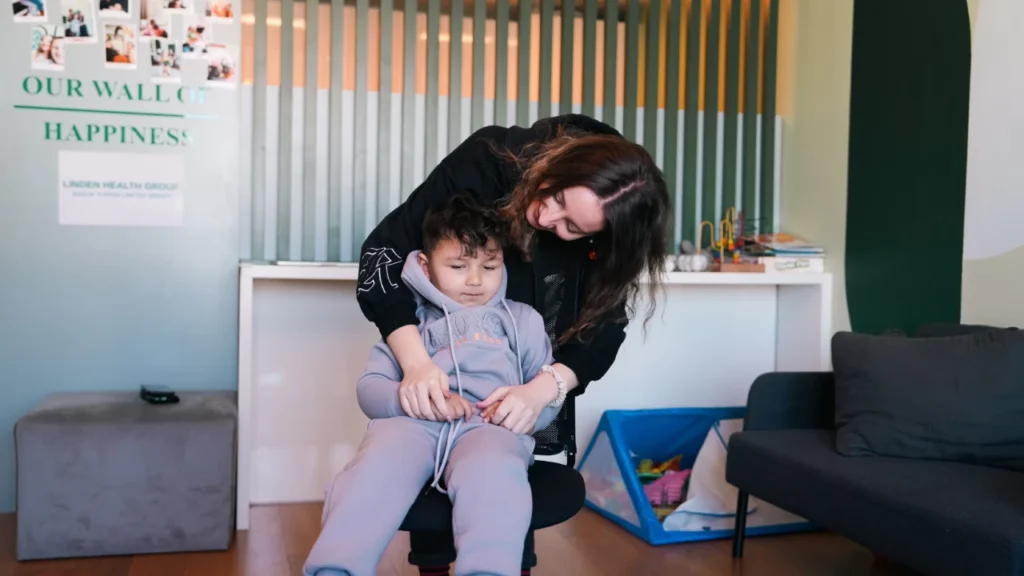Table of Contents
Introduction: A New Chapter for Adults on the Spectrum
Autism isn’t something one “grows out of”—it’s a lifelong neurodevelopmental condition that affects people in unique ways. While early intervention is often emphasized, many adults and their families are now asking:
“Is stem cell therapy helpful for adults with autism?”
As research expands and families share promising results, stem cell therapy is gaining attention not just for children but also for autistic adults seeking improved quality of life.
This article explores current studies, expert perspectives, and real-world experiences, highlighting how stem cell therapy may serve as part of a holistic approach to adult autism care.
Understanding Autism in Adults
Adults with autism often face ongoing challenges related to:
- Social communication
- Sensory processing
- Emotional regulation
- Executive functioning (planning, organizing, focusing)
These traits do not mean something is “wrong” but reflect the brain’s neurodivergent pathways. That said, many adults are open to therapies that could enhance their daily functioning, reduce anxiety, or support independence.
“As adults with autism seek more autonomy, many are also exploring non-traditional support methods—stem cell therapy being one of them.”
— Dr. Elena Park, Neurodevelopmental Specialist

How Might Stem Cell Therapy Help?
Stem cell therapy focuses on cellular repair and immune system regulation, areas that have shown potential relevance in autism-related research.
Key Mechanisms Being Studied:
- Reducing chronic inflammation in the brain
- Enhancing synaptic (neuron-to-neuron) communication
- Improving gut-brain axis function
- Modulating immune responses
While research has largely centered around children, studies are increasingly including adolescents and adults, with some clinics already offering adult-centered protocols.
What Does the Research Say?
Emerging clinical trials and case studies suggest potential benefits of stem cell therapy in autistic individuals across age groups.
Notable Findings:
- Adults receiving mesenchymal stem cells (MSCs) have shown improvements in social interaction, emotional regulation, and attention span.
- Functional MRI scans in select cases indicated enhanced neural connectivity post-treatment.
- Improvements were often subtle but meaningful to daily life.
🔬 A study published in Frontiers in Neurology noted that MSCs “show promise in modulating immune responses and may support behavioral outcomes in autism spectrum disorders.”
Real-Life Experience: What Families and Adults Report
Many adult patients and caregivers have shared Stem Cell Therapy for Autism Reviews that mention:
- Calmer emotional states
- Increased ability to focus during tasks
- Enhanced social confidence
- Reduced sensory overload
It’s important to emphasize that outcomes vary depending on the individual’s needs and biology.
Accessibility: Where and How to Begin
If you’re searching for Stem Cell Therapy Autism Near Me, consider:
- Clinics that specialize in neurodevelopmental care
- Facilities involved in published clinical research
- Providers who offer personalized adult protocols, not just pediatric ones
What About Safety?
Stem cell therapy is generally considered safe when performed in medically supervised environments using ethically sourced cells. Most adults report minimal side effects, such as:
- Mild fatigue after infusion
- Temporary mood shifts (due to neurological adjustment)
- No long-term complications noted in published studies
Always consult with a licensed medical team familiar with autism spectrum conditions before making any decisions.
Summary: Expanding Possibilities at Any Age
Autism doesn’t end at childhood, and neither should the opportunities for support. While more research is needed to fully understand the impact of stem cell therapy on adults, current findings offer hope and direction.
For some adults, this therapy may support a more regulated nervous system, better emotional clarity, or simply a greater sense of ease in everyday life.
Whether you’re an adult on the spectrum or a family member looking to help a loved one, this path is worth exploring with compassion, curiosity, and clinical guidance.
Frequently Asked Questions
Is stem cell therapy only for children with autism?
No. While much of the early research focused on children, more clinics are now offering programs tailored for adults, and early outcomes are promising.
Can adults still see meaningful results?
Yes. While results vary, many adults report increased calmness, focus, and emotional clarity after therapy.
Does this therapy cure autism?
No. Stem cell therapy does not aim to “cure” autism but to reduce inflammation and support improved quality of life.
Is it safe for adults?
When administered under proper clinical supervision, it is generally well-tolerated with low risk of serious side effects.
How do I know if this is right for me or my loved one?
A personalized consultation with a specialist familiar with both autism and regenerative medicine is the best starting point.

